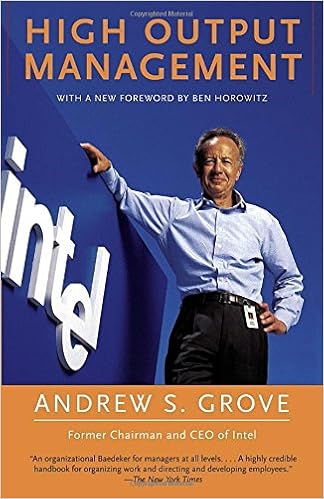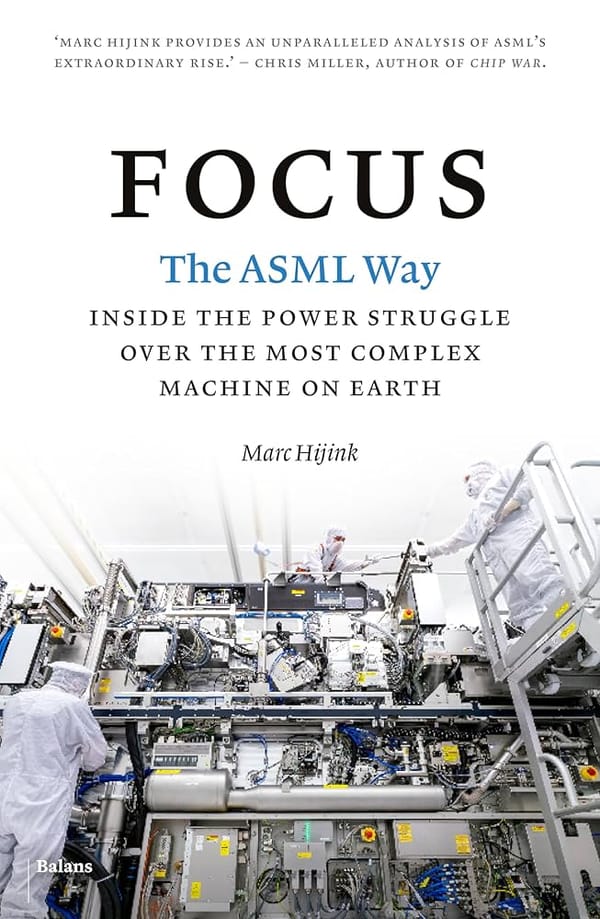By Andrew Grove (1983)
Pages: 272, Final verdict: Should-read
Andy Grove is one of the most respected icons of Silicon Valley. A refugee from Hungary post-WW2 that found his way to the US on a boat, Andy became one of the founders of Intel, the company that shaped what would become known as Silicon Valley, being at the inception of the information age that has taken over the world.
In 1983, while at Intel, the 1997 TIME's magazine "Man of the year" wrote one of the most critically acclaimed management books of all time. In High Output Management, Andy depicts his life as a CEO, and shares with the rest of the world the lessons he learned during his tenure at Intel.
A manual to everyday management
High Output Management is meant to be digested as manual for effective management. Written with the sheer simplicity and candor iconic to Mr.Grove, it focuses on the little things that compose the day of any mid/high level manager, drawing a comparison with the principles needed to run a breakfast joint (the prevalent analogy of the book compares managing Intel with running a breakfast bistro).
Never short of examples from Intel and breakfast-related analogies, Andy introduces his view on a vast array of concepts:
-
Manufacturing basics - Andy draws a parallelism between a factory and the managerial world, introducing how bottlenecks can limit your efficiency, your setup time between activities and how to manage work inventory.
-
Meetings - Love them or hate them, meetings are at the center of the life of a manager (and the rest of us). Knowledgeable of their importance as a medium of managerial work, the book demystifies why different roles of management lead to different type of meetings.
-
Decisions - Making decisions is a core element of anyone in a leadership position. From a few complex decisions to countless trivial ones, the process through which a manager makes (and communicates) a decision is of tremendous value. Again, we are given a behind the scenes look into how decisions were made at Intel, and the six key questions managers need to know before entering the process.
-
Management by Objectives - An avid defender of a metrics driven approach to management, Intel pioneered the use of the OKR (Objective and Key Results) framework, now famous by being used at Google, LinkedIn and Twitter. A full chapter is dedicated to the managerial planning process. And that's pretty cool.
-
Hybrid Organizations - Organizations can come in two ways: mission-oriented vs functional oriented. And while mission-oriented organization focus on decentralization and independence as the means for decision making (think having the freedom to set up your menu as the manager of a franchise of the breakfast restaurant), functional organization leverage their impact on the organization by accessing economies of scale and of knowledge (such as the purchasing department of the aforementioned restaurant chain) . In practice, most organizations adopt a hybrid format, wishing to take advantage of both worlds. Navigating towards that conciliation is a hard endeavor, and as always, Andy is happy to give managers his vision of how to reach safe waters.
I know. You can’t possibly fit all of that into anything less than a bible-sized book, right? Turns out you can (and I only scratched the surface). The secret? More than 30 years of experience, a passion for pragmatism, and a bullshit free narrative.
“As a middle manager, you are in effect a chief executive of an organization yourself….As a micro CEO, you can improve your own and your group’s performance and productivity, whether or not the rest of the company follows suit.” - Andy Grove
The holy grail of Grove's management
Coming back to the breakfast analogy, High Output Management delivers a surprisingly long menu of choices, all of them sure to giving you enough food...for thought.
While exploring the mechanics for practical and effective management, three ideas were brought up consistently throughout the book:
-
The success of a manager is the output of his team. No more, no less. There are no individual awards for a good manager with a team performing at a subpar level. A good manager focuses his/her time and effort on elevating the output of the team. And that's the way the cookie crumbles.
-
A manager should focus on high leverage activities. Time is the scarcest resource of a manager's time. As such, one should never discard performing tasks that have a high leverage on their team. Two of examples explored in depth are one-on-one meetings and performance reviews.
-
A manager has two jobs: to train and motivate. Related to the previous points, Andy believes that if your team is not performing as expected, they either don't want to do it (not motivated) or can't do it (not knowledgeable). Turning that around is not only a high leverage activity, but one that will have a direct influence on the team's output.
“We managers get a little more obsolete every day.” - Andy Grove
Despite not being part of this book, given his life in Hungary that preluded the move to the US as a refugee, I invite you learn about the upbringing of Andy Grove. As remarkable of a business man as he was, what impresses (and humbles) me the most is how someone that faced unimaginable adversity in life managed to succeed as much as he did.
Bottom Line
High Output Management became an instant classic soon after its publication. Far from the traditional paradigm of management books, Andy Grove takes his raw experience at managing Intel and translates it in a digestible and down to earth fashion.
If you want to become a better manager starting tomorrow, buy the book today. If you're not a manager, reading it will shed more light into the nuts and bolts of your supervisor's work, and give you more context into his/her decisions (specially the unpopular ones). In my case, this is certainly one of those books I will keep on my nightstand to go back to once I need to make use of Andy's long lived experience as a manager.
Artwork has the power of timeliness, of being always up to date and fit into the ever-changing landscape of our society. Worthy of being in every bookshelf out there, High Output Management fits in that category and is here to stay, certain to live decades past it creator (Andy Grove past away earlier this year).
Further learning:
- Buy the book online.
- Ben Horowitz's foreword of the book
- An article about the life story of Andy Grove



